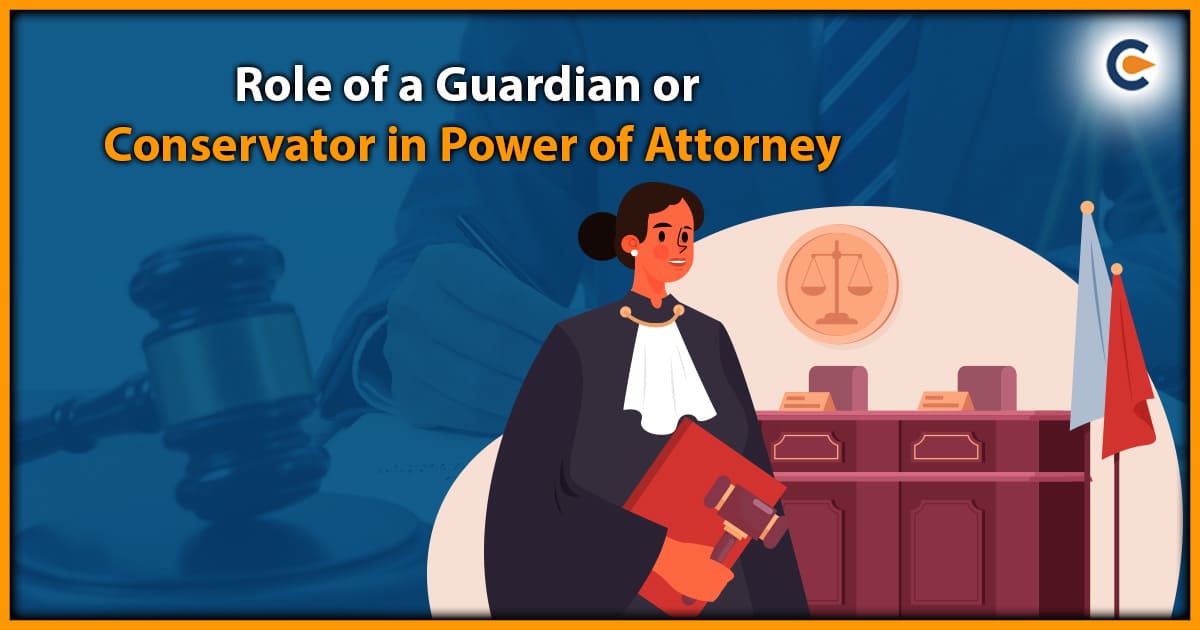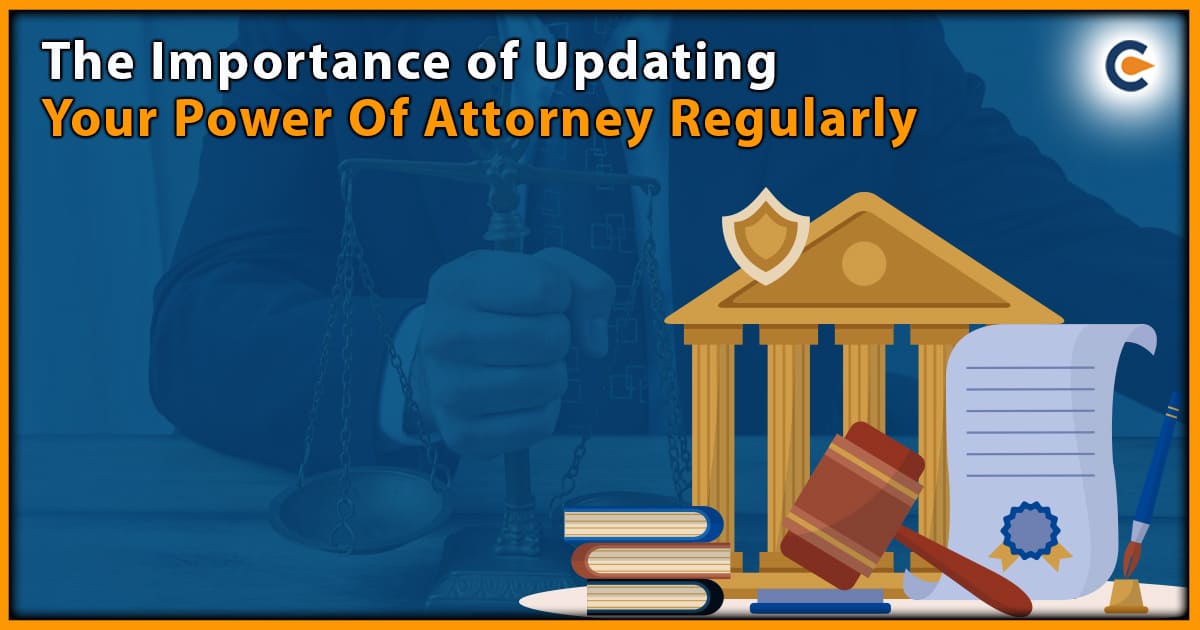Introduction
It is crucial to have someone who is authorised to assist and act on behalf of an adult who is unable to manage their affairs, whether they be financial, medical, or personal. While spouses automatically consent to the necessary actions, other family members may find it challenging to step in due to stringent banking and medical confidentiality laws. The courts issue the power to act on behalf of another adult in one of three ways to address such situations:
- Power of attorney (POA)
- Conservator
- Guardian
Power of Attorney (POA)
A power of attorney gives the principal person the legal right and capacity to make decisions on behalf of someone who is unable to do so for themselves. A power of attorney enables the POA agent to handle financial, business, and medical decisions on behalf of the grantor, known as the principal. Even though a power of attorney is put into force right away, the principal often has no intention of using it unless he becomes incapable.
A durable or sustainable power of attorney designates a person to manage the principal’s finance-related matters in the event that the principal himself is unable to do so. The most frequent use of this is when a person develops a disability and loses their capacity to comprehend financial issues. The person the principal chooses can represent himself on his behalf. A person appointed by the principal for power of attorney is known or titled as a “POA agent”. The durable power of attorney, in order to be effective, must be written and signed by the POA agent before the principal’s incapacity. In a durable power of attorney, POA agents have the power or authority to sign checks, manage bank accounts, and handle matters related to real estate, including buying and selling, filing tax returns, and any other financial conditions that need to be handled.
Conservator or Conservatorship
A conservatorship[1] is “an agreement or arrangement whereby an individual or entity manages the personal and financial matters of another person; such a person can be a minor or a person who is legally incapable of managing their own matters”.
The conservator is the person in charge of the personal and financial affairs of another person, legally known as a conservatee. A conservator is in charge of or responsible for things like securing credit, paying bills, or purchasing real estate on behalf of the conservatee. The conservatorship agreement made by the conservatee will decide what duties and responsibilities shall be performed by the conservator. A conservator is legally bound to perform or fulfil the activities mentioned in the conservatorship agreement. If the conservator’s role in the conservatorship agreement includes managing only property-related matters, then the conservator can make decisions only about the conservatee’s property and cannot meddle in any other matters.
A state court must grant conservatorship at the request of the prospective conservator. Guardianship is only given when the state finds that the individual receiving care is “incompetent” or “incapable” (in the legal sense, due to mental disease). As a result, the conservatee’s consent is not necessary, as it is acknowledged that due to their incapacity or inability, they are unable to give consent in a legal sense. A conservator can, however, ask the court to end conservatorship by filing an application.
In reality, guardianship is frequently requested by family members of a person who has a serious disease or a significant obstacle to their ability to make legal decisions, like being imprisoned.
After Britney Spears was admitted for temporary psychiatric treatment in 2008, her father and lawyer were given temporary and subsequently permanent conservatorship of her estate. The court also gave Spears’ father legal authority to make decisions and make personal remarks on her behalf.
Guardian or Guardianship
As per law, Guardianship also known as legal guardianship, is a relationship between one person known as the guardian who has the authority to make choices, usually personal but occasionally financial, on behalf of another person known as a ward.
A guardian is described as “a person who is legally entrusted with the custody of the person or property, or both, of another person, such as a minor, or a person who is legally incapable of managing their own business, respectively”.
Guardianships are similar to conservatorships in that they both require state court approval, do not require the ward’s assent, and result in the ward’s loss of capacity to make legal decisions.
Some of the personal choices a guardian can make for a child include their health, housing, and education.
Many guardianship arrangements concern minor children whose parents are deceased, in prison, or have serious health problems. In adult instances, guardianship is typically awarded to family members or other individuals who want to take care of a person who has a major mental illness or other handicaps that prohibit them from making their own personal decisions, in particular those pertaining to medical treatment.
The distinction between Power of Attorney vs. Conservatorship vs. Guardianship
Without having to go to court, a power of attorney offers the principal a great deal of authority over who will make decisions on his behalf. With a power of attorney, the principal has a lot of control over the range of actions the POA agent can authorise. A principal can save a lot of time and work by using a power of attorney to protect their privacy. A court’s judgement on guardianship and conservatorship proceedings may also be influenced by powers of attorney. A principal can also appoint a guardian for judicial matters via a durable power of attorney. With this strategy, a person can choose their own guardian or conservator without the assistance of the court.
In a specific order, the court appoints guardians, giving preference to those who the individual or a power of attorney has designated as guardian.It can be an individual’s spouse, adult child, or any relative. The person has the option to adjust this hierarchy of importance. If a person thinks that his friend is more capable of making these crucial decisions for him than any of his family members or relatives, then he can choose his friend to be his guardian. If no one in the applicant’s family is able or willing to offer assistance or if no one is chosen, in the end, responsibility may lie with the applicant’s representative or a professional guardian appointed by the court.
In conservatorship, a similar procedure takes place. With the consent of the court, a person appointed as a guardian for guardianship may also name a person to be a guardian on his behalf. In the event that no one else is able or willing to do so, the court may also appoint a professional conservator.
One of the main distinctions between a power of attorney, conservatorship, and guardianship is cost. A power of attorney is less expensive and only needs a few signatures. The same is true for seniors; they can appoint their choice of power of attorney, but in the case of conservatorship or guardianship, a judge decides who will be their conservator or guardian. A Power of Attorney can also be structured in a number of ways, enabling the principal to restrict his POA agent to a particular group of assets or even a defined period of time.
Need of a power of attorney, conservator, or guardian
If an individual doesn’t have a spouse to make decisions for them in the event of their disability, a family member or friend will require one of these options. It’s preferable to have someone who is aware of an individual’s preferences and has the authority to make decisions for them while they’re in a coma, critically injured, experiencing mental issues, or suffering from any other type of serious injury. All three adhere to the ward’s desires and behave in his best interests.
Role of a Guardian or Conservator in Power of Attorney
A person who lacks mental capacity cannot simply execute a power of attorney to avoid the need for the court to name a guardian or conservator for him.
A person must be able to comprehend and articulate their wishes effectively in order to create a lasting power of attorney. When the court thinks a person is incapable enough for him to appoint a guardian or conservator, that person cannot obtain a legally durable power of attorney.
If a court determines that the signer of a Power of Attorney was not mentally competent at the time it was signed, the court will revoke or cancel the power of attorney document.
The POA agent listed on the POA document is qualified to make decisions if the power of attorney includes the categories of decisions the individual (POA agent) needs to make, e.g., finance, health, etc.
The court can appoint a guardian or conservator for the individual who has been granted durable power of attorney for one reason but not another. For example, if a durable power of attorney is appointed for making health-related decisions but not for finance-related decisions, then the court can appoint a guardian or conservator to make decisions that are not covered by an enduring power of attorney.
Conclusion
It is crucial to have someone act or make decisions on their behalf if they are incapable or unable to manage their own affairs. To make decisions related to personal affairs, finances, or health, a power of attorney can be created, as can a conservator or guardian, who can also be appointed by the court. If a POA agent is already appointed to make finance-related decisions, the court can appoint a guardian or conservator to make decisions about other matters that are not covered by the power of attorney. Between a power of attorney, conservatorship, and guardianship, a power of attorney is less expensive and only needs a few signatures. A Power of Attorney can also be structured in a number of ways, enabling the principal to restrict his POA agent to a particular group of assets or even a defined period of time.
Read our Article:How To Create A Power Of Attorney For Business Transactions?











